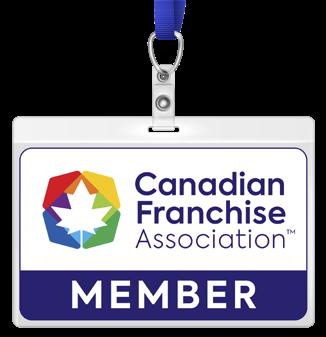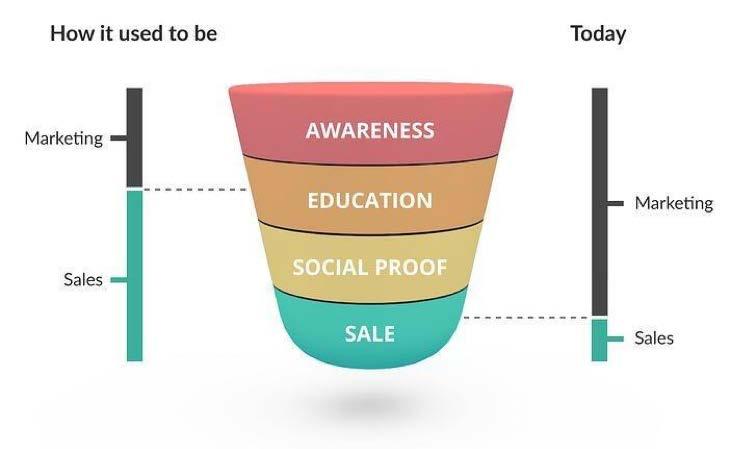
6 minute read
Déjà Brew
Déjà Brew Appealing to coffee aficionados in the Canadian market BY ROBERT PHELPS
Canada’s relationship with coffee stretches back to the 17th century and a morning brew has now become synonymous with the Canadian lifestyle - whether it be an Americano from Tim Hortons, a filter coffee brewed at home, or a to-go double shot hazelnut latte with oat milk from an independent coffee shop. While consumers have benefited from this endless array of coffee shops and drink choices, an increasingly saturated marketplace poses a challenge for independent store owners and franchisees. Added to this, as consumers’ purchasing habits evolve with social media trends, owners are often left racing against their competitors to keep up with fluctuating customer demands. Setting your business apart from the crowd has, therefore, become the name of the game as owners seek to differentiate their offer from the competition, and this requires a robust understanding of customers’ coffee drinking habits.
Franchise owners need to understand exactly what their consumers want and ensure they are providing this as part of their service. In conjunction with Angus Reid, SilverChef’s report Coffee in Canada: An Unfiltered Look takes a deep dive into what’s making Canadians tick when it comes to coffee.
The “Greta Effect” The climate crisis is now on the national agenda like never before – in part thanks to vocal environmental activist, Greta Thunberg – and while this has kickstarted a widespread public conversation about how to become more sustainable, millennials have been the most influenced demographic.
Our research shows that over half of the population considers the environment when choosing where to purchase a coffee, and millennials are spearheading this trend. In fact, 55 per cent of millennials now consider access to reusable coffee cups when deciding where to purchase their brew. The origin of coffee beans and milk choices are also factors for 27 per cent and 22 per cent of millennials respectively when picking up their regular drink.
With sustainability now at the forefront of consumers’ minds, franchises need to signal that their business values are aligned with their customer’s values in an effort to encourage repeat visits. For example, some stores have begun offering discounted drinks to consumers that bring in reusable coffee cups, and national independent store, JJ Bean, recently switched to compostable coffee cup containers. Similarly, Air New Zealand has partnered with edible coffee cup company Twiice, meaning flyers now have a tasty, zero-waste option when enjoying a midflight brew. It’s only a matter of time before a Canadian airline follows suit, presenting exciting opportunities for the industry and the hospitality sector in Canada. By showing customers that your business cares about sustainability, and is working to improve its environmental footprint, buyers will become loyal to the brand, clocking up repeat visits.
Helping consumers make ethical decisions It’s well known that franchises need to stay nimble and flexible to changes in consumer trends, and show that they are willing to adapt their product to fit evolving customer preferences. However, sometimes the product isn’t the coffee on offer, but the franchise’s business systems.
Sustainability goes beyond to-go coffee cups – it’s about giving consumers the opportunity to make ethical purchasing decisions
that are good for the triple (social, environmental, and financial) bottom line. The introduction of blockchain technology is offering consumers transparent insight into the coffee supply chain, something that has been unprecedented up until now. By integrating blockchain technology into their systems, business’ accountability to the consumer has increased tenfold as customers are able to trace the origin of their product from source to checkout. While the upfront cost could be a challenge for some franchises, many businesses have benefited from heightened trust and renewed consumer brand loyalty. Ethical Bean - a Canadian coffee manufacturer - uses traceable software, including a mobile app and product QR codes, to help consumers track their coffee beans’ supply chain journey, communicating to potential shoppers from the get-go that its coffee is ethically sourced.
Recognize provincial differences In an effort to maintain a distinct brand identity, franchises often choose to prioritize consistency of product and menus rather than catering to regional disparities. However, SilverChef’s national research identified significant provincial differences in coffee taste preferences.
For example, Ontarians are most likely to enjoy a cappuccino with 23 per cent of consumers in that province choosing it as their drink of choice. Albertans and Quebecers are the most likely to enjoy a morning latte, at 31 per cent and 20 per cent respectively., People from Atlantic Canada are the most likely to limit their caffeine intake and enjoy a decaf coffee instead at 16 per cent.
Coffee franchises typically offer a wide range of coffee choices on their menus, but more attention should be given to how advertising and marketing choices are impacting customers, both new and returning. People from Manitoba and Saskatchewan are the biggest coffee drinkers, enjoying approximately three cups of coffee a day, however, they are also the least likely to choose iced coffees, espressos or cappuccinos. Reflecting on regional disparities and altering a Manitoban coffee advert from a focus on espresso to drip coffee would directly target consumers and drive business. Each provincial market is unique and it is important to recognize that a focus on brand cohesion should not be to the detriment of a tailored provincial marketing campaign.
Déjà brew Though the quality of coffee is still the most important factor to consumers, 90 per cent of respondents consider price when choosing where to purchase their coffee. As a result, over twothirds of coffee drinkers chose to buy their coffee from supermarkets rather than from a barista, and brew at home. While lower price point options should form part of a franchise’s menu, owners should also consider meeting this demand by offering packs of coffee beans and instant coffee sachets (sustainably made or compostable/recyclable) from their suppliers to help redirect market share from supermarkets to their own cash register.
Adopting a loyalty program is another simple way for franchises to attract repeat shoppers, redirecting market share from grocers to coffee shops. Waves Coffee recently introduced a loyalty card offer rewarding repeat visits with store points that add up to free products. With competitive pricing so important to Canadian
shoppers, incentives in the form of loyalty programs are a strong way for franchises to appeal to the more money-savvy shoppers, while not compromising on lowering their coffee price point.
To be successful, it’s important for franchises to recognize that Canadians are creatures of habit. They continue to drink roughly the same number of coffees a day every year, averaging out at 2.3 cups. The message from Canadians is clear: our coffee should be of good quality, sustainably sourced and there should be a variety of products on offer to suit their varied tastes and budgets.
To remain competitive, franchises should keep an ear to the ground for the latest trends and concentrate on consumer preferences regionally, while maintaining a high standard of customer service, competitive pricing and the basic options. Coffee in Canada: An Unfiltered Look shows that the majority of coffee franchise sales will come from drip coffee sales, so offering the best quality coffee at the most competitive price is key to success. Keeping ahead of the curve with new technological and environmental innovations will drive consumer loyalty, but should not come at the expense of a simple cup of coffee, brewed to perfection.
ABOUT THE AUTHOR Robert Phelps has been the leader of SilverChef’s Canadian business since 2017. He has 25 years of experience in the financial sector, having previously worked with RemServ, St George Banking Group and the National Australia Bank. He is passionate and committed to building a strong and mutually rewarding relationship with partners and clients.
THE FUTURE OF FRANCHISE DEVELOPMENT IS NOW
Harness the power of automation to intelligently nurture your leads!

INQUIRY
With timely, personal, and relevant communications, we drive the highest possible volume of qualified applications for your franchise opportunity from the leads you’ve generated.
EMAIL PHONE CALL SMS TEXT DIRECT MAIL
Spend zero time on tire-kickers while AXIS warms up your leads automatically.
intelligentleadnurturing.com
To learn more, contact Corey Nicholson at 416-503-3210 ext. 319 or cnicholson@axis-dbm.com











